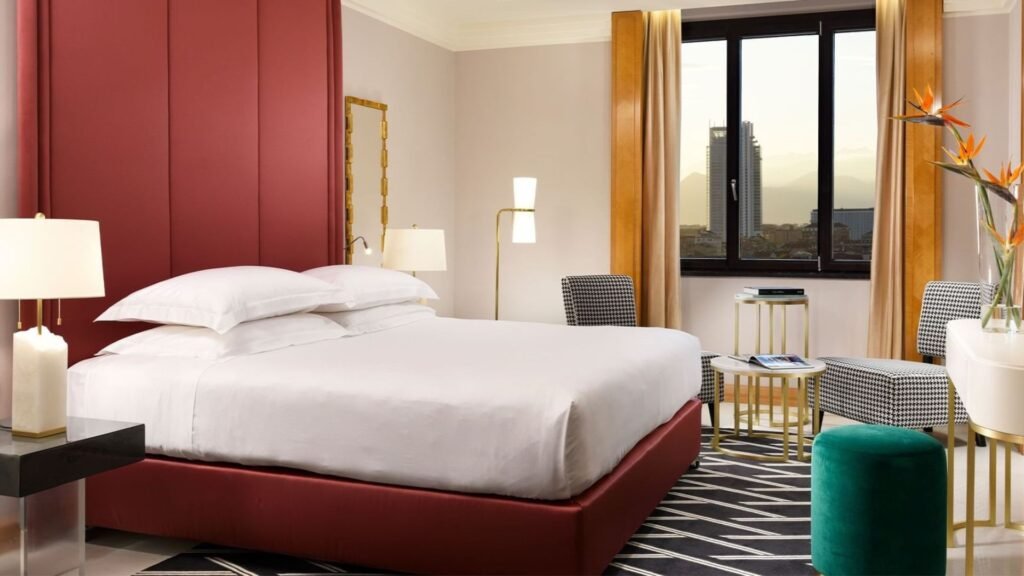Jun 24, 2024
Best Practices for Conserving Energy in Your Hotel Room
Conserving energy in your hotel room not only helps reduce your environmental footprint but can also contribute to cost savings and a more sustainable travel experience. When staying in a hotel, practicing energy conservation not only supports environmental sustainability but also promotes responsible travel habits. Implementing these best practices can help you reduce energy consumption and contribute to a more eco-friendly stay.

1. Use Energy-Efficient Lighting
LED Bulbs
Opt for energy-efficient LED bulbs instead of traditional incandescent bulbs. LEDs use less electricity and last longer, reducing the need for frequent replacements.
Turn Off Lights
When leaving your hotel room, ensure all lights are turned off. Use natural daylight whenever possible to minimize reliance on artificial lighting.
Use Task Lighting
Instead of lighting up the entire room, use task lighting such as desk lamps or bedside lamps to illuminate specific areas when needed.
2. Manage Heating and Cooling
Adjust Thermostat
Set the thermostat to an energy-saving temperature when leaving the room or during periods of extended absence. Adjust the temperature to a comfortable level upon returning.
Use Curtains and Shades
During hot weather, close curtains and shades to block out direct sunlight and reduce the need for air conditioning. Open them during cooler periods to utilize natural ventilation.
Avoid Overheating or Overcooling
Be mindful not to overheat or overcool the room beyond necessary comfort levels, which can lead to unnecessary energy consumption.
3. Minimize electronic usage
Unplug Electronics
Unplug chargers, appliances, and electronics when not in use or when leaving the room. Even in standby mode, they continue to draw power.
Use Power Strips
Plug multiple devices into a power strip to easily turn them off with one switch, reducing standby power consumption.
Opt for Energy-Star Rated Appliances
If available, choose hotel rooms equipped with Energy-Star rated appliances and electronics, which are designed to be more energy-efficient.
4. Conserve Water
Shorter Showers
Take shorter showers to reduce hot water usage, which accounts for a significant portion of energy consumption in hotels.
Reuse Towels and Linens
Participate in hotel programs that encourage the reuse of towels and linens to minimize water and energy usage associated with laundering.
Report Leaks
Promptly report any leaks or plumbing issues to hotel staff to prevent unnecessary water wastage.
5. Practice Sustainable Habits
Turn Off Air Conditioning
When leaving your room for extended periods, turn off the air conditioning to conserve energy.
Limit Use of Hotel Amenities
Use hotel amenities such as spas, fitness centers, and pools judiciously to minimize energy and water consumption associated with their operation.
Use Eco-Friendly Transportation
Choose eco-friendly transportation options and explore nearby attractions on foot or by bike to further reduce your environmental impact.
6. Educate and Advocate
Educate Fellow Travelers
Share energy-saving tips and encourage fellow travelers to adopt sustainable practices during their hotel stays.
Provide Feedback
Provide feedback to hotel management on energy-saving initiatives and express support for sustainability practices.
Conclusion
By incorporating these best practices for conserving energy in your hotel room, you can contribute to environmental conservation and promote sustainable travel habits. Making conscious choices such as using energy-efficient lighting, managing heating and cooling responsibly, minimizing electronics usage, conserving water, practicing sustainable habits, and advocating for energy conservation can make a significant impact. Whether traveling for business or leisure, embracing these practices ensures a more responsible and enjoyable hotel experience while reducing your carbon footprint.

Your article helped me a lot, is there any more related content? Thanks! https://accounts.binance.info/ru/register-person?ref=O9XES6KU
Thank you for your sharing. I am worried that I lack creative ideas. It is your article that makes me full of hope. Thank you. But, I have a question, can you help me? https://accounts.binance.info/register-person?ref=IXBIAFVY